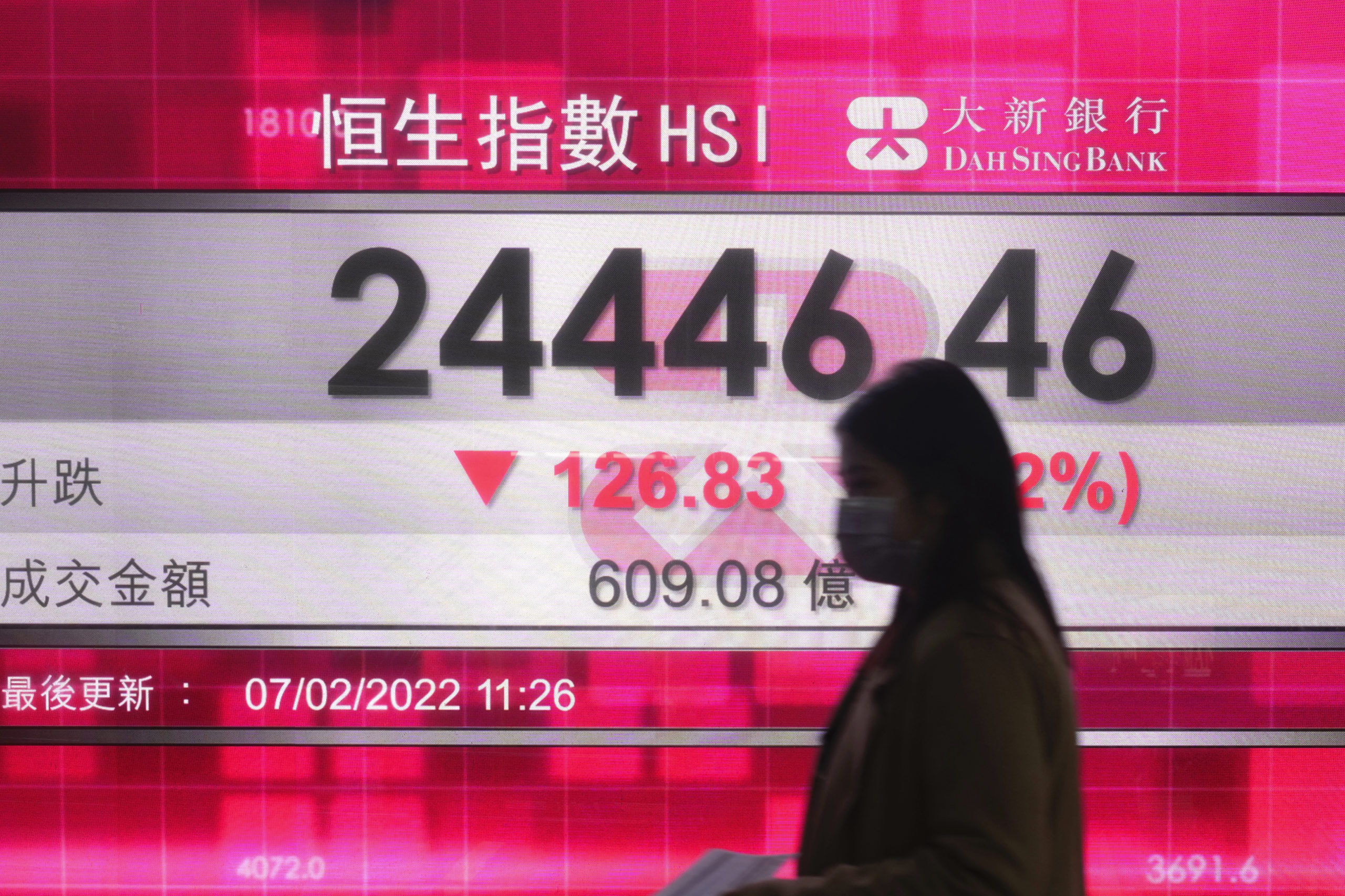 1
1 1
1
BEIJING (AP) — Asian stock markets were mixed Tuesday after Wall Street fell as investors watched for signs of whether global central banks will try to cool inflation by speeding up the withdrawal of economic stimulus.
Shanghai and Hong Kong declined. Tokyo, Seoul and Sydney advanced.
In New York, the benchmark S&P 500 index sank Monday on losses for tech and communications companies.
Investors are trying to figure out how quickly U.S., European and other central banks will withdraw record-low interest rates and other stimulus that are boosting stock prices to cool inflation that is at multi-decade highs.
On Monday, the European Central Bank president, Christine Lagarde, tried to dampen talk of rate hikes, saying at a European Parliament hearing any change “will be very gradual.” Expectations that the ECB will adopt a more hawkish policy at its March meeting increased after the board said last week inflation risks were increasing.
The prospect of tighter monetary policy “has prompted asset markets to falter,” said Tan Boon Heng of Mizuho Bank in a report.
The Shanghai Composite Index lost 0.9% to 3,399.50 and the Hang Seng in Hong Kong sank 1.4% to 24,224.36.
The Nikkei 225 in Tokyo rose 0.4% to 27,365.46 after the government reported labor cash earnings declined 0.2% from a year earlier in December. Core household spending fell 1% from the previous month.
The Kospi in Seoul advanced 0.9% to 2,770.58 and Sydney’s S&P-ASX 200 gained 0.9% to 7,171.50. New Zealand and Southeast Asian markets also rose.
On Wall Street, the S&P 500 sank 0.4% to 4,483.87. The benchmark index is now 6.5% below its Jan. 3 high.
The Dow Jones Industrial Average was nearly unchanged, adding 1.39 points to 35,091.13. The Nasdaq composite fell 0.6% to 14,015.67.
Facebook’s parent, Meta, fell 5.1% and Google’s parent company Alphabet fell 2.9%. Microsoft fell 1.6%.
Energy and financial companies made solid gains. Chevron rose 2% and insurer Allstate rose 2.2%.
Traders are trying to figure out how stocks will be affected as the Fed carries out plans to accelerate the withdrawal of stimulus. Investors expect at least four interest rate rises this year, starting next month.
The ECB, which controls the European Union’s euro currency used by 17 countries, is expected to take longer to wind down bond purchases that are meant to push down market interest rates by pumping money into the financial system.
Investors are waiting for U.S. consumer inflation data Thursday, which might influence Fed planning.
Also this week, central banks in India, Thailand and Indonesia hold policy meetings.
In energy markets, benchmark U.S. crude lost 3 cents to $91.29 per barrel in electronic trading on the New York Mercantile Exchange. The contract 99 cents to $91.32 on Monday. Brent crude, the price basis for international oils, shed 16 cents to $92.53 per barrel in London. It declined 58 cents the previous session to $92.69.
The dollar gained to 115.34 yen from Monday’s 115.08 yen. The euro declined to $1.1432 from $1.1442.